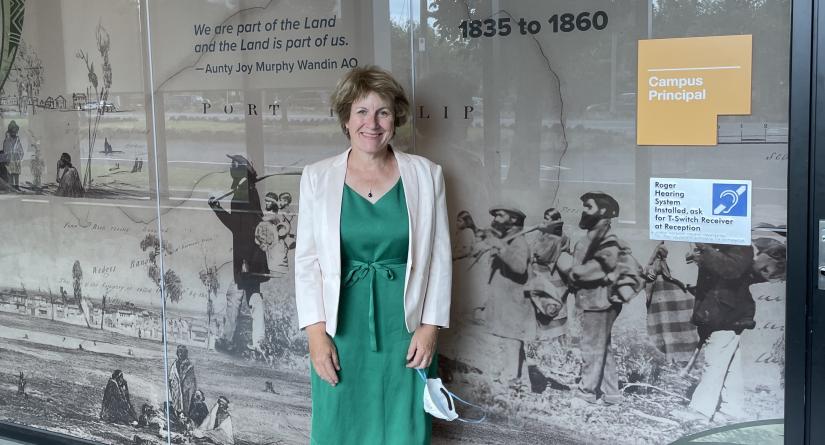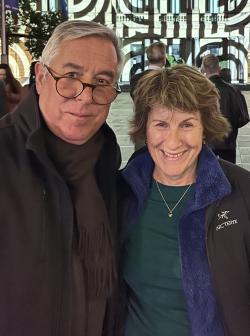At the heart of Sue’s long career has been a deep practice in history and heritage interpretation. What is heritage interpretation, you ask?
That’s the same question Sue usually gets from her clients, followed by: “Why should we pay for it?”
This repetitive conversation drove Sue to pursue a PhD with the Australian Centre for Public History in the UTS Faculty of Arts and Social Sciences.
She is using it to demonstrate the value heritage interpretation brings to economic development, the environment and important social debates.
“I didn’t start my PhD to gain any more career advantage because at 61 years old, that's not my goal,” she laughs.
“I started the PhD because I was researching this on my own. I just wanted to fix a problem that I’ve battled my entire career.”
That problem lies in the invisible parts of our heritage.
“What we call heritage is only a tiny fragment of what happened in the past. It might be a building, letter, an archaeological remnant, ritual, tradition or an important moment in time," she says.
“The people connected to heritage are often hidden or invisible. The role of heritage interpretation is to tell the stories of these people and the places they value. This makes heritage more relevant to a wide range of visitors, local people and stakeholders.”
Underpaid and undervalued
Frustrated by heritage work being undervalued, Sue tackles the issue head-on by having discussions about the value of heritage interpretation and history at the start of each project.
It’s during these discussions that she draws on her research to outline the opportunity costs associated with not communicating heritage properly.
“I’m researching this topic to make sure major construction projects don’t marginalise heritage by ticking the box, like only adding a sign in the corner. It’s a way to get the industry moving and to make heritage more important.”
Earlier in her career when she branched out to start her own business, Sue Hodges Productions, Sue was faced with the reality of what clients thought of heritage interpretation. Despite being an expert in the field, Sue was paid very little.
“For six months of work I got $3,000 from one design company and they didn't pay travel expenses. Whereas they were getting $250,000 for the whole job,” Sue explains.
It’s remarkably clear to Sue how valuable preserving and interpreting heritage is to propelling Australia forward on the right path. But the rest of us – including the architects, developers and governments - need a bit more help.
Now deep into her research, Sue has practical terms to explain the benefits that clients will gain from investing in heritage interpretation.
A PhD gives you more credibility. It also gives you a lot of confidence because you've done the research to backup what you're saying.
First Nations focus
“Today, heritage is being used to fight climate change, to give people jobs and to engage people in important social and political debates such as The Indigenous Voice to Parliament,” Sue lists.
While she doesn’t have an official role in the Voice campaign, Sue’s already working closely with First Nations people to help them get more engaged and valued in major projects.
“First Nations heritage wasn't such a prominent focus of my research when I started, but in the last several years in Victoria it's become the main focus for all our work in the business,” she says.
“My work is not just about keeping a heritage site safe, it's about showing people what that means, why they should love it and why they should respect First Nations people and the culture associated with their Country.”
“Rather than being only doing a Welcome to Country or a smoking ceremony, I work with First Nations groups to engage them in the big projects where they have a genuine chance to get proper incomes. That’s where real change comes from.”
Accidentally pursuing a PhD
It didn’t even occur to Sue to start a PhD until a friend suggested she reach out to Paul Ashton, an Adjunct Professor of Public History at UTS. She was content conducting the research in her own time.
But after being granted a scholarship, Sue embarked on her research at UTS part-time - even though she’s based in Melbourne.
“I always thought UTS has the edge in applying theory to practice. You always see UTS on the news where they make an effort to make the research count and matter,” she says.
She firmly believes her PhD is helping her career.
“I've always believed confidence comes from hard work and research. Put that hard work into understanding what your field's about," she says.
"All of it will help you be more confident as a person and much better at your job.”
→ It’s never too late to research a problem. Explore UTS research degrees


